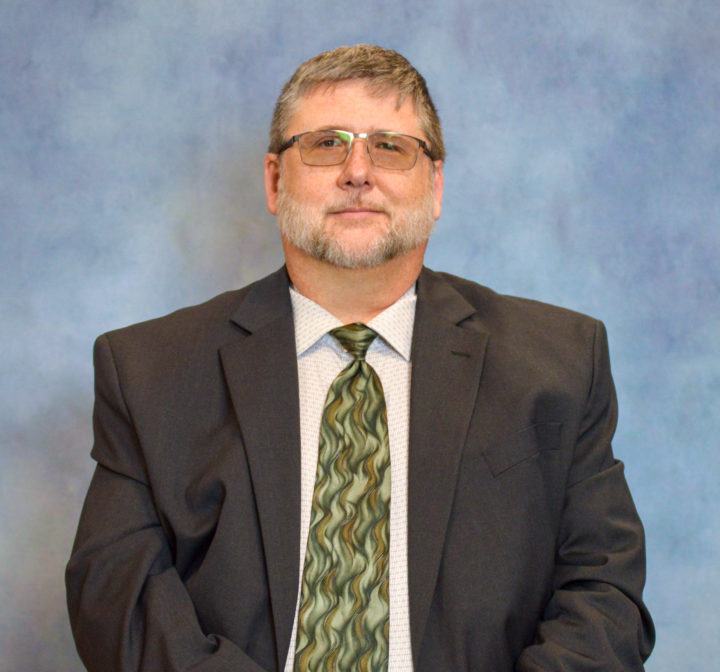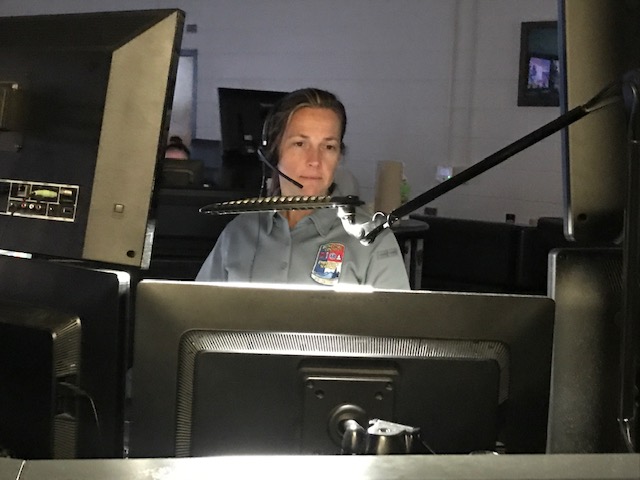Eight years ago, Laurie Sykes was in an emotional crisis and she searched online for help. She found a website with a list of phone numbers for crisis hotlines. But she had to call several numbers to finally reach a trained counselor.
“I just went down the list until I got somebody,” recalls Sykes, who works in peer support at Mountain Area Health Education Center. “I think the person that answered said they were in Texas.” Sykes lived in North Carolina.
Her frustration is all too common, both for local hotlines like the ones she called and the National Suicide Prevention Lifeline, the country’s main crisis hotline since 2005. In July, The Wall Street Journal reported that 1-in-6 of the over 9 million calls to the NSPL from 2016-21 ended before the caller connected with a counselor.
That is changing. On July 15, the federal government debuted 988 Suicide and Crisis Lifeline, a new, easy-to-remember dialing code that operates differently from NSPL. Contacting 988 routes callers to a call center in their state, and trained crisis counselors answer 24/7.
In North Carolina, the call center is REAL Crisis Intervention in Greenville, according to the U.S. Department of Health and Human Services Substance Abuse and Mental Health Services Administration. REAL Crisis Intervention has partnered with N.C. Department of Health and Human Services Mental Health, Developmental Disabilities and Substance Abuse Services as the hotline for North Carolina’s 100 counties since 2012. The call center added 24/7 chat and text response with the debut of 988, according to N.C. Department of Health and Human Services. (The NSPL number — 800-273-8255 — will redirect to the new hotline).
NSPL previously made direct referrals for local callers to RHA Health Services, says Sherrie Pace, West Mobile Crisis Management program director, which serves 11 counties in Western North Carolina. She expects those referrals will continue for situations where “somebody could use some face-to-face support.”
NSPL did a “warm transfer” — meaning its counselor contacted RHA, then conferenced in the caller to hand over to RHA — approximately five-six times a month, Pace says. She’s not aware of the amount of referrals from 988 yet, as the dialing code is so new.
According to federal grant information, Vibrant Emotional Health, the administrator of the 988 Suicide and Crisis Lifeline, estimated a 30% increase in call volume in North Carolina after the transition. But calls to 988 already have surpassed that estimate: From July 2-15, the NSPL had 1,306 calls answered in North Carolina, says Kelly Haight Connor, spokesperson for NCDHHS. Between July 16-29, 988 had 2,235 calls answered — a 71% increase in call volume following a media blitz.
The importance of intervention
Not everyone who calls a crisis hotline is actively suicidal. “A lot of people are struggling with the isolation from COVID,” explains Sykes, who works for the Promise Resource Network crisis hotline in Charlotte in addition to her job at MAHEC. “A lot of people are lonely and just want someone to talk to who will listen.” Sykes also says she receives “quite a few callers that are trying to stay clean.”
Victoria Reichard, Buncombe County behavioral health manager, says that crisis lines are crucial for inserting “protectors [who may] reduce someone harming themselves.” She explains, “The time between someone thinking of suicide and maybe attempting can be like 10 minutes — it’s very impulsive. When someone’s calling and reaching out for help, there’s that opportunity to change that direction.”
Part of the reason Sykes underwent training for crisis hotlines, she says, was to spare people from calling for help in the midst of an emergency and not reaching someone. “We always answer,” she says of Promise Resource Network. “When people are struggling, they need somebody to answer.” (Sykes is trained in an approach called Alternatives to Suicide, which seeks to destigmatize discussion of the topic, as well as Emotional CPR, which teaches listening skills for working with people in crisis.)
Pam Jaillet, executive director of the National Alliance on Mental Illness Western Carolina, an organization supporting people experiencing mental illness and their loved ones, anticipates the dialing code 988 will make a “huge difference” for individuals.
“It’s really hard to remember the older number [800-273-8255],” Jaillet says. “Especially if you’re in crisis, that’s not the time to be looking up a phone number. So I think [988] will really help.”
Local is better
NCDHHS’ press release announcing 988 says North Carolina’s NSPL “call center is one of the most responsive in the country. In May 2022, 98% of calls were answered in less than seven seconds, the second-best rate among the 50 states.”
When any local lifeline was at capacity, NSPL would reroute to one of the nearly 200 call centers in its nationwide network with trained counselors available. (Even if that availability was, as in Sykes’ case, thousands of miles away.) This protocol wasn’t ideal.
“Having that local connection helps get you connected to all of the best resources in the community,” explains Pace from RHA.
In 2020, the Federal Communications Commission designated 988 as the new NSPL number; later that year, Congress passed legislation to transition NSPL to the 988 Suicide and Crisis Lifeline. Additional funding will beef up services locally: In April, the federal government awarded North Carolina $3,252,972 to increase staffing at REAL Crisis Intervention. The N.C. General Assembly’s 2022 budget, which was signed by Gov. Roy Cooper, also includes $1.3 million in recurring funds.

‘911, what’s your emergency?’
Individuals in distress, or bystanders who witness people in distress, often call 911. 911 dispatchers are not trained crisis counselors. However, they receive extensive training about answering attempted suicide calls, and receive additional training annually, says Derrick Ruble, Buncombe County public safety communications director. A dispatcher always stays on the line with the caller until help arrives.
“It’s not an everyday occurrence, but it does happen,” says Ruble of calls reporting suicide or attempted suicide. (Asheville and Buncombe County consolidated 911 services in November.) The 911 dispatcher confirms the caller’s location and phone number, and asks a series of questions, like if the caller has a weapon, he explains.
The county’s Emergency Services Department and local law enforcement protocol says if callers haven’t harmed themselves or another person, 911 should dispatch law enforcement, Ruble explains. If callers have harmed themselves or another individual, both an ambulance and law enforcement are dispatched.
Sometimes third-party witnesses will call, such as when a person looks as if he or she may jump off a building or bridge. In that case, 911 dispatch may send the Asheville Fire Department or another agency, depending on the situation.
From Jan. 1, 2018-Aug. 8, 2022, the Asheville Police Department responded to 43 suicides, according to data provided to Xpress by APD’s crime analyst. During that same period, APD also responded to 205 attempted suicides.
Emergency Services would like the ability to immediately connect callers who aren’t actively suicidal to behavioral health experts. “A lot of times someone does just need to have someone to talk to and to be heard,” Reichard says.
Adds Ruble, “We’re hoping down the road when we get that call where they need somebody to talk to, we would be able to transfer that call to either an on-call practitioner, a nurse or a clinic, 24/7.”
That’s an idea that mental health experts support. “It’s not law enforcement’s wheelhouse,” says Pace of responding people in emotional crises. “And although they’re amazing, letting [crisis calls] go directly to a behavioral health professional, I think, is a better option and a better use of our law enforcement.”



Before you comment
The comments section is here to provide a platform for civil dialogue on the issues we face together as a local community. Xpress is committed to offering this platform for all voices, but when the tone of the discussion gets nasty or strays off topic, we believe many people choose not to participate. Xpress editors are determined to moderate comments to ensure a constructive interchange is maintained. All comments judged not to be in keeping with the spirit of civil discourse will be removed and repeat violators will be banned. See here for our terms of service. Thank you for being part of this effort to promote respectful discussion.